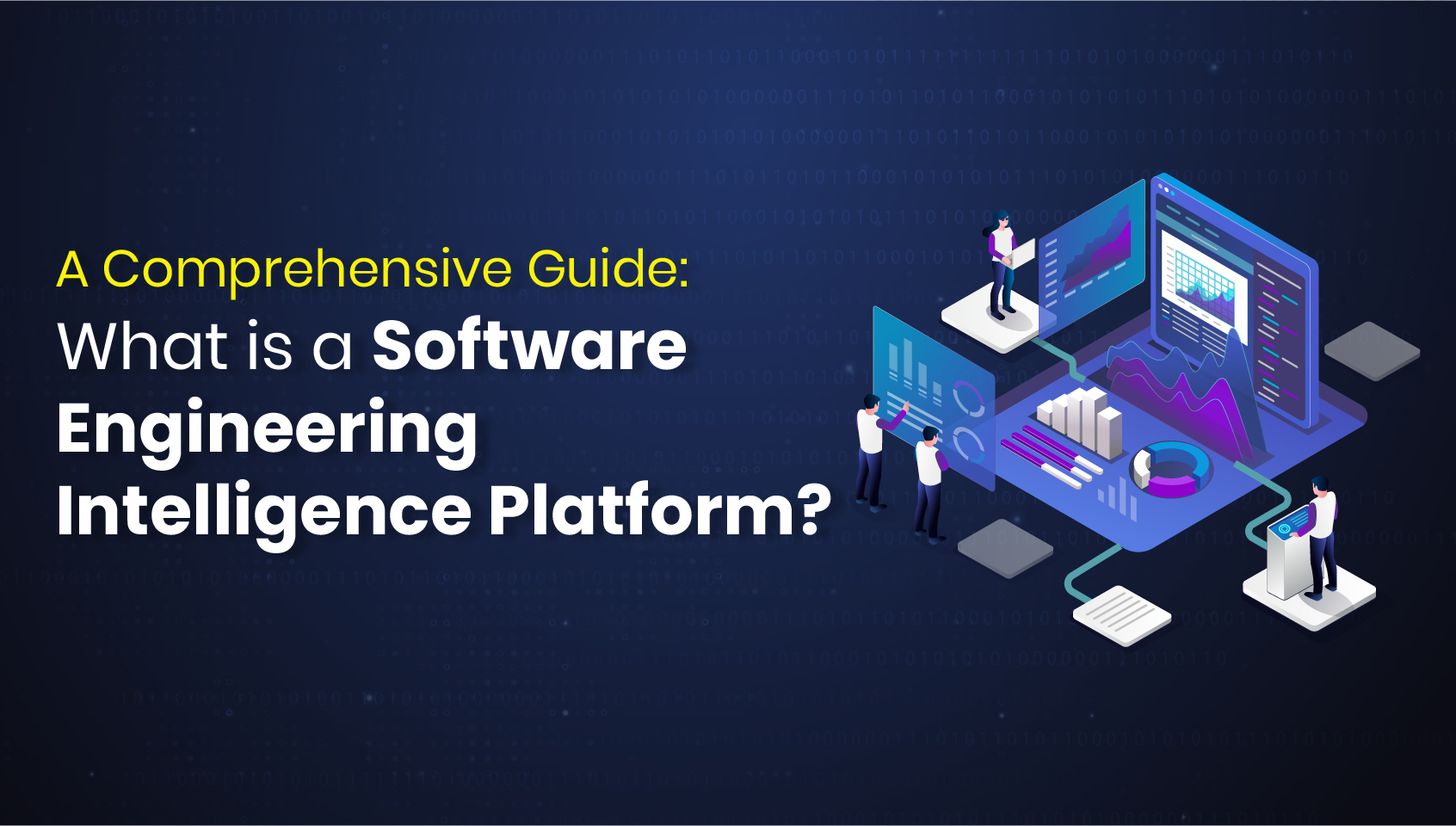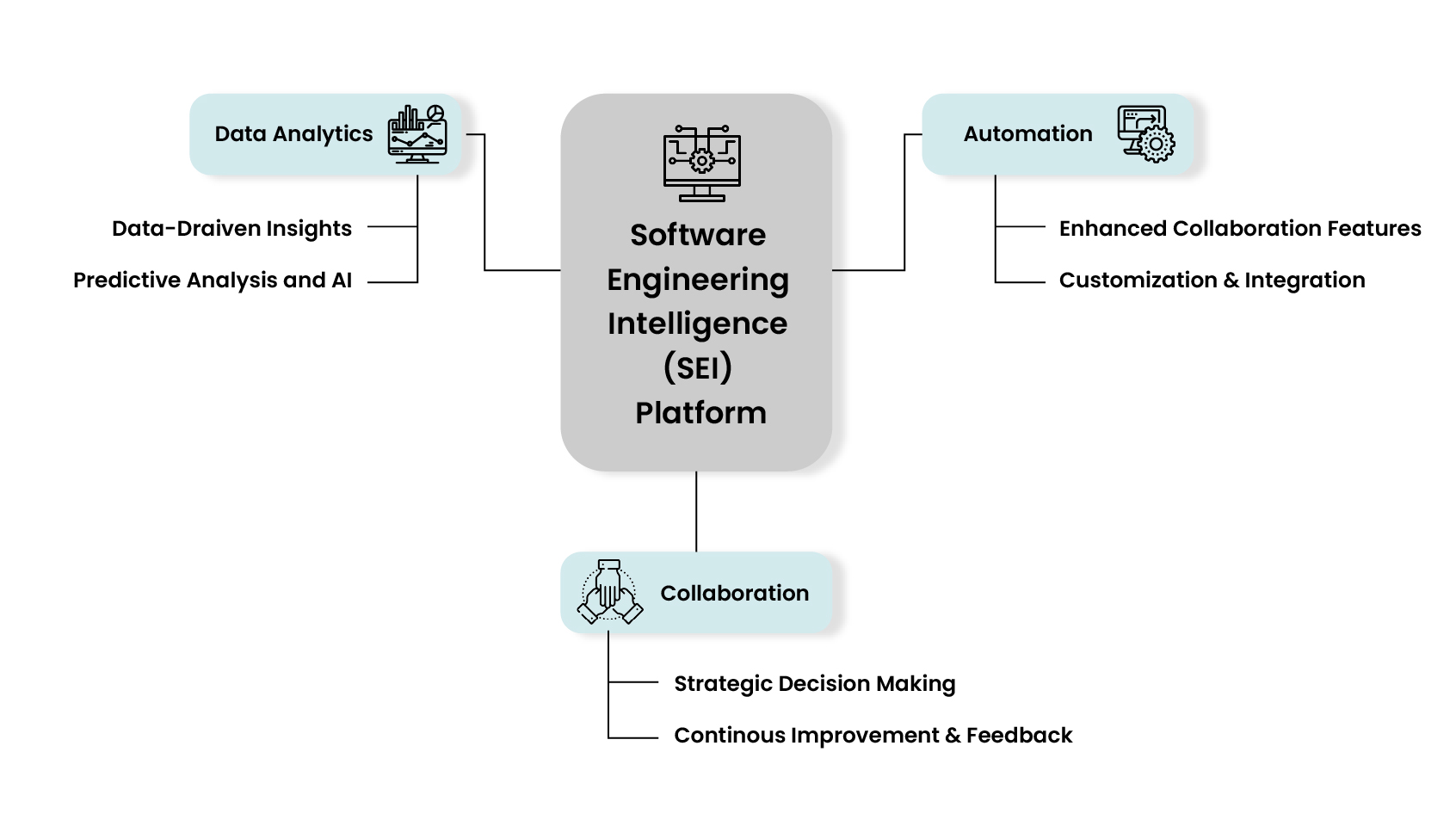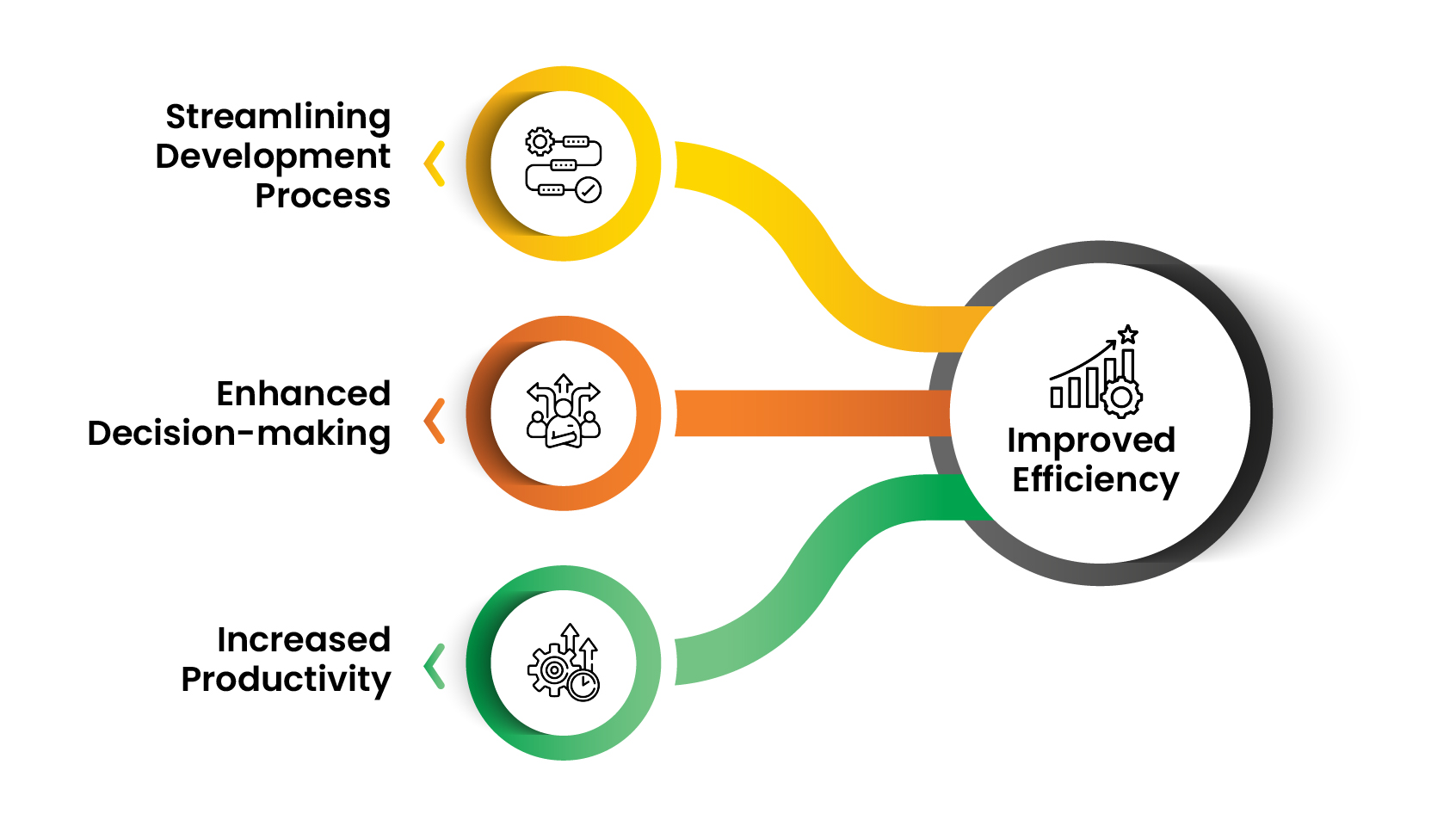
Envision a future where delayed projects are a thing of the past. In the dynamic realm of software engineering, with its vibrant community of approximately 24 million developers globally, the line between triumph and delay often rests on the pillars of effective project management and insightful decision-making. Enter the software engineering intelligence platform: a transformative force, not just a mere tool. It serves as both a microscope, providing detailed insights into the intricacies of development processes, and a telescope, offering a strategic view of overarching project goals. This article delves into how these platforms are revolutionizing the landscape of software engineering, not only changing but elevating standards of efficiency and excellence. For instance, companies employing these platforms have reported improvements in time-to-market by up to 30%, showcasing their significant impact on operational efficiency. By focusing on areas such as resource allocation, code quality, and innovative development practices, these platforms are redefining what it means to excel in software engineering.
Understanding the Basics
A Software Engineering Intelligence (SEI) Platform is an advanced tool that synthesizes data analytics, automation, and collaboration to refine the software development process. Distinct from conventional project management tools, SEI Platforms offer a holistic overview of the software engineering lifecycle. This comprehensive perspective is pivotal for enabling data-driven decision-making and streamlining software delivery.
Unlike typical software tools that concentrate on task execution, SEI Platforms emphasize integrated project management, analytics, and strategic insight. The following breakdown illustrates this distinction:
- Data Analytics: SEI Platforms leverage data-driven insights and predictive analysis, augmented by AI, to inform strategic decisions throughout the development cycle.
- Automation: These platforms introduce enhanced collaboration features and allow for customization and integration with other tools, reducing manual overhead and fostering a more agile development environment.
- Collaboration: By facilitating strategic decision-making and continuous improvement through feedback, SEI Platforms ensure that all stakeholders are aligned and informed, making collaboration more effective and productive.

This approach not only accelerates project timelines but also improves the quality of the software produced, ultimately leading to a competitive advantage in the market.
Key Differentiators of Software Engineering Intelligence Platforms
Broad Scope vs. Specific Functionality: While traditional software tools often specialize in singular tasks such as code editing, version control, or task management, SEI Platforms transcend these limitations. They amalgamate these functionalities to provide a comprehensive, unified view of the entire software development process, which is invaluable for overseeing complex, multifaceted projects.
Data-Driven Insights: Intelligence platforms stand out by harnessing data analytics for actionable insights into project health, team dynamics, and operational efficiency. Unlike standard tools that may only offer data snapshots, SEI Platforms collate and process data from diverse sources to deliver a multi-dimensional view of project status and progress.
Predictive Analysis and AI: The integration of AI and machine learning equips SEI Platforms with the foresight to predict project trajectories, pinpoint potential issues before they escalate, and recommend proactive measures. This predictive approach is a leap forward from the reactive troubleshooting that is characteristic of conventional tools.
Enhanced Collaboration Features: Beyond facilitating basic collaboration, SEI Platforms offer sophisticated features for team engagement, knowledge dissemination, and real-time interaction. These advanced capabilities are instrumental in fostering a collaborative culture that can significantly uplift team productivity and morale.
Customization and Integration: The customizable nature of SEI Platforms, combined with their ability to integrate with a plethora of tools and systems, ensures a tailored fit for various software development environments. This versatility is key to maintaining workflow continuity and enhancing tool interoperability within organizations.
Strategic Decision-Making: SEI Platforms excel in equipping leaders with comprehensive dashboards, insightful reports, and critical metrics, which are essential for informed strategic decision-making. This strategic orientation offers a stark contrast to the operational focus of more traditional tools, affirming the role of SEI Platforms in steering project direction and policy.
Continuous Improvement and Feedback: Embracing the principles of agile and lean methodologies, SEI Platforms incorporate continuous feedback mechanisms. These systems encourage iterative enhancements in both processes and practices, driven by real-time data and analytics. This ethos of continual refinement is central to fostering a culture of excellence and innovation.
Core Features of Software Engineering Intelligence Platforms
Advanced Analytics: Beyond mere data compilation, Software Engineering Intelligence Platforms leverage sophisticated analytics to extract profound insights. They scrutinize code quality, development workflows, and productivity metrics, utilizing machine learning to discern trends, anticipate issues, and recommend improvements. This analytical prowess provides a deep understanding of the 'why' behind the data, enabling teams to enhance both the processes and the outcomes of software projects.
Automation: More than a mere feature, automation represents a paradigm shift in software development practices within these platforms. From streamlining code reviews and testing to automating deployment and complex problem-solving tasks like anomaly detection, automation liberates developers to dedicate more time to creative and innovative endeavors.
Collaboration Tools: The integrated collaboration tools of these platforms are crafted to optimize team interaction and productivity. They encompass unified communication avenues, collaborative workspaces, and tools tailored for both real-time and asynchronous teamwork. This connectivity ensures cohesion and synchronicity across teams, irrespective of geographical location, streamlining project progress and fostering a unified development ecosystem.
Real-time Insights: The ability to deliver instantaneous data is a key attribute of these platforms. Real-time insights empower teams to make swift, informed decisions, remain agile in response to evolving project demands, and address challenges promptly. This immediacy is vital in today's fast-paced development landscape, ensuring projects stay on course with continuous visibility into their health, team performance, and code integrity.
Benefits for Software Development Teams
The ascendancy of software engineering intelligence platforms is by no means accidental. They are pivotal in bolstering the efficiency of development teams, yielding benefits that are both significant and unmistakable. Below we explore the key advantages these platforms offer, highlighting their indispensable role in modern software development:

Improved Efficiency
At the heart of their value proposition, software engineering intelligence platforms are instrumental in optimizing development processes, culminating in a substantial uptick in efficiency. By coalescing disparate stages of the software development lifecycle—from ideation to deployment—these platforms dismantle operational silos and mitigate the friction that traditionally impedes project momentum. They ensure fluid transitions between development phases, maintain workflow consistency, and curtail errors via automated oversight. For example, by streamlining integration and deployment (CI/CD pipelines), these platforms drastically diminish the need for manual handling and the associated risk of human error. Consequently, this leads to a development process that is not only expedited but also more consistent and reliable. Such a harmonized approach not only accelerates delivery times but also upholds, if not elevates, the caliber of the final product.
Enhanced Decision Making
Software engineering intelligence platforms elevate the decision-making landscape by distilling actionable insights from a wealth of project data. They sift through historical and current project metrics, as well as team performance data, to forge a holistic view of the development lifecycle. This analysis is pivotal in unearthing patterns, forecasting challenges, and guiding strategic resource distribution, timeline restructuring, and process refinement. Consider the scenario where the platform uncovers recurrent delays in a specific development phase; teams can proactively tackle these issues by realigning resources or revamping methodologies. Armed with a lucid and detailed map of the development journey, teams are empowered to execute strategic, data-centric decisions, thereby amplifying project quality and operational efficiency.
Increased Productivity
The potency of software engineering intelligence platforms in supercharging developer productivity cannot be overstated. They finesse work processes and supply instrumental tools that catalyze a more streamlined workflow. A prime method they employ is the intelligent distribution and prioritization of tasks, aligning developers' specific competencies with the most pressing project requirements. Furthermore, these platforms often encompass features such as automated code assessments and testing protocols, which expedite the development cycle and liberate developers to tackle more intricate and inventive project facets. By alleviating the mental burden of routine responsibilities and curtailing interruptions, these platforms curate an environment conducive to heightened effectiveness and focus. In addition, the continuous insights generated by these platforms spotlight avenues for skill enhancement, propelling ongoing personal and team growth and, by extension, bolstering productivity in the long run.
Challenges and Considerations
While the advantages of software engineering intelligence platforms are clear, their adoption is not without hurdles and key considerations. Even as they promise transformation, these platforms bring a level of complexity that must be adeptly managed.
Integration with Existing Tools
The integration of a novel software engineering intelligence platform into an established system presents intricate challenges. Tools and procedures already ingrained in an organization's ecosystem must seamlessly mesh with the new platform to avoid operational disruptions. The strategy lies in ensuring that the platform can communicate flawlessly with existing systems, which may necessitate custom adaptations to the platform or upgrades to the legacy infrastructure. Successfully navigating this challenge is pivotal to preserve ongoing productivity and to allow the platform to bolster, rather than obstruct, current processes.
Learning Curve
The introduction of a software engineering intelligence platform typically entails a steep learning curve. Teams are required to acquaint themselves with unfamiliar interfaces and functionalities, which may lead to a temporary dip in productivity. To mitigate this, it's imperative to provide exhaustive training and robust support. Implementing the platform in phases can also ease the transition, letting teams gradually get comfortable with the new tools. While the initial period of acclimatization is substantial, the consequent proficiency gained can be transformative, unlocking the platform's comprehensive capabilities. Therefore, investing in education and adaptation should be a deliberate part of the implementation plan.
Security and Privacy
In today's digital landscape, where data breaches have become alarmingly routine, the security and privacy of software engineering intelligence platforms are of utmost importance. These systems are repositories of sensitive data, encompassing proprietary code and detailed project information, which places them firmly in the crosshairs of cyber threats. Instituting stringent security protocols is non-negotiable—encryption, rigorous access controls, and consistent security assessments are fundamental requirements. Moreover, adherence to data protection regulations such as GDPR or HIPAA is critical, particularly when handling customer information. It is imperative that the chosen platform provider offers solid guarantees and certifications concerning data safeguarding practices. Neglecting these aspects can lead to severe repercussions, from legal challenges to a significant erosion of trust among stakeholders.
Addressing these ubiquitous challenges, our Software Engineering Intelligence Platform TED acts a central focus, facilitating a secure and seamless assimilation into your existing workflows. TED's intuitive UI/UX is designed for ease of adoption, presenting an insubstantial learning curve. Gartner has spotlighted TED in their latest report, “Innovation Insight for Software Engineering Intelligence Platforms,” highlighting the substantial benefits these platforms confer upon engineering teams.
TED's implementation across various organizations has yielded extraordinary results. Companies have reported a 50% reduction in mean time to repair (MTTR), a tripling in deployment frequency, and a marked elevation in team productivity. Additionally, they have experienced significant improvements in release success rates, among other notable advantages.
The Future of Software Engineering Intelligence Platforms
As we look to the horizon, the domain of Software Engineering Intelligence (SEI) platforms is on the cusp of an evolutionary leap, charting a course towards deeper integration, enhanced intelligence, and a more pronounced impact on the software engineering sector.
Artificial Intelligence and Machine Learning: The next generation of SEI platforms is poised to harness AI and ML with greater intensity, offering profound insights, automating more intricate tasks, and delivering forward-looking analytics. Anticipate breakthroughs such as sophisticated bug identification, automated code refinement, and AI-powered coding recommendations, transforming the developer experience and enhancing code quality.
Increased Customization and Flexibility: Acknowledging the diverse and specialized nature of modern software development, future SEI platforms are expected to provide heightened customization. This will enable support for an array of programming languages, development practices, and project varieties, alongside more versatile interfaces and analytics instruments, meticulously tailored to individual requirements.
Enhanced Collaboration Tools: As remote work cements its place in our professional lives, SEI platforms are anticipated to integrate more advanced tools for collaboration. Innovations in this space could improve communication fluidity, project oversight, and synchronous collaboration, effectively bridging the distances between globally dispersed team members.
Integration with Emerging Technologies: SEI platforms are set to become more intertwined with cutting-edge technologies like quantum computing, the Internet of Things (IoT), and edge computing. Such integration promises to arm development teams with the capabilities to pioneer and proficiently manage software solutions that stand at the forefront of technological innovation.
Potential Impact on the Software Engineering Industry
The SEI platforms on the horizon are set to revolutionize not just the tools of software development, but the very nature of the developer role. As automation of routine coding tasks becomes more prevalent, developers will be expected to pivot towards more intricate problem-solving, nuanced design work, and strategic oversight.
These advanced SEI platforms also hold the promise of democratizing the field of software development. By simplifying the more complex elements of coding and project management, they could lower the barriers to entry, enabling a wider and more diverse array of contributors to take part in software creation.
The swift evolution of these platforms calls for a dedication to continuous education within the industry. Developers and project managers alike will need to remain at the vanguard of technological progress, integrating new tools and techniques into their workflows.
The impending era of SEI platforms harbors the potential to radically transform the landscape of software engineering. Through the power of AI, the adaptability of customizable solutions, and the synergy with emergent technologies, these platforms are destined not just to streamline development processes but to redefine the very essence of how software is ideated, crafted, and overseen.
To witness the future of SEI platforms in action, we invite you to explore TED, our state-of-the-art SEI platform that embodies these progressive capabilities. Visit our website for a firsthand look at how TED embodies these dynamic developments or reach out to us at info@qentelli.com to become a part of this exciting journey towards reshaping the world of software development.

